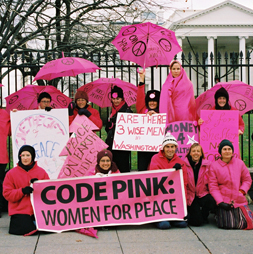- About
- Topics
- Picks
- Audio
- Story
- In-Depth
- Opinion
- News
- Donate
- Signup for our newsletterOur Editors' Best Picks.Send
Read, Debate: Engage.
| February 17, 2020 | |
|---|---|
| topic: | Conservation |
| tags: | #ecofeminism, #tourism, #environment, #women's rights, #Indonesia, #Saras Dewi |
| located: | Indonesia |
| by: | Magdalena Rojo |
FairPlanet: You admitted you had little faith that people in Indonesia would read your book. Why did you have these doubts?
Saras Dewi: In the book, I used phenomenology to view the problem of ecological degradation. I had very little faith that Indonesians would be interested in philosophy or anything related to ecology. But, it turns out that mostly young people are reading and discussing the book.
Are young Indonesians more interested in the environment now than before?
Yes. I was wrong to feel hopeless. I started to work with a lot of individuals who work safeguarding the environment, in Java, Maluku islands, Bali, Kalimantan. I am seeing this new search for a movement done by the young generation who are claiming their rights for a better environment and voicing their resistance to the older generation. There is a bigger crowd now talking about the environment.
What is the main point you try to prove in your book Ecophenomenology?
I particularly talk about anthropocentrism. It is a form of centralised viewpoints from the perspective of a human. My proposal is that we cannot move away from our position as an individual or as a human being but we can re-evaluate and prioritise our interests. It is about how we talk about nature: not that nature is outside of us but that nature is also us. We are within nature. It is hard to be separated from nature. What is happening now is the misconception that nature is something complimentary to our life. Nature should be the substance. People nowadays feel like they are the centre of the universe. They feel they are the main character of this story happening within the cosmos, whereas that is false. It creates arrogance and it also feeds our greed that we can do anything without environmental consequences.
Is the capitalist system responsible for this view?
Yes, obviously, that has been my position for a long time. We cannot continue business as usual because it is not only killing human beings but also plants and animals. The system is wrong in that we celebrate growth in a very shallow understanding, in which growth is about how you attain a certain level of wealth. I think it is contradictory to our limited resource. It is not possible to create eternal progress and growth, we have to be very careful about the resources we have now.
How can we overcome this need for progress if it is not sustainable?
We have to have trust in the power of communities, doing things like perma-culture, wilderness conservation, fighting infrastructural projects. These examples have been a proof that individuals doing things through the communities work.
You have also been very active in protesting against the Benoa Bay Reclamation project that aimed to bring tourist sites to a sacred site of Bali. Finding the balance between tourism activities and environmental protection has been also a challenge in Bali.
People view tourism as the ultimate good. Before, Bali was an agricultural island. I want to challenge people that our idea of creating money only through tourism is not right because we will reach a point where everything will crumble. It is not sustainable. We are already facing water scarcity threats, pollution. I am not against any economic activity but we have to find that delicate balance. And of course, it will cost us some sacrifice, but in the long run it will be good for our relation with nature.
What do you see as the biggest challenge in tourism?
One of the obvious problems is how land conversions are happening. Benoa Bay is a great example of that. In 2015, a very rich developer put out a proposal and tried to persuade the Balinese that they would benefit from it. But, those waters in the bay are sacred waters, they are not ours, they belong to a heritage that we must protect. We searched more about mitigation, what could happen if the project continued. For example, risks of flooding, water scarcity, southern Bali being overcrowded.
The bay is also the essence of our spirituality. The developer saw it as a piece of property, but for the people living there it is a place of their gods. And tourism should be also about education. It should not be about creating even larger gaps between classes, I am against that. The question is: how are we going to empower people through economic activity that would create justice in a sense that there would not be segregation between the rich and poor anymore.
Thanks to the protests in Benoa Bay, the tourism project was stopped and the area was reclaimed as a conservation area last October. And the Balinese did it with peaceful protests.
Balinese are warm-hearted people, the protest in Benoa Bay were always about dancing, saying poems. People in Bali are using elements of the arts to protest. And our ways are non-violent, which is the nature of our religion.
How is it to be a female environmental activist in Indonesia?
I struggle. I feel I have to prove myself more than men. I probably work three times harder. And people would still discriminate me just for being a woman.
When I talk about ecofeminism, for instance, people ridicule it.
In what way is ecofeminism important for the protection of the environment?
Women in rural areas who are doing the work of guarding the environment, they work every day with water, with the soil. To them, these are not objects, they are their expansion so when they think about their body, they think about the body of the soil, of the water. That kind of empathy is a very strong feature of being a woman. Ecofeminism acknowledges these things as power.
Ecofeminism is based on the intuition and solidarity between women and nature. We both feel we have been exploited, so in this sense it is solidarity, a sisterhood with Mother Nature. A lot of people still ridicule the idea, but at the moment women leadership in the environmental sector is very inspiring, even in Indonesia the movement is growing.
By copying the embed code below, you agree to adhere to our republishing guidelines.

